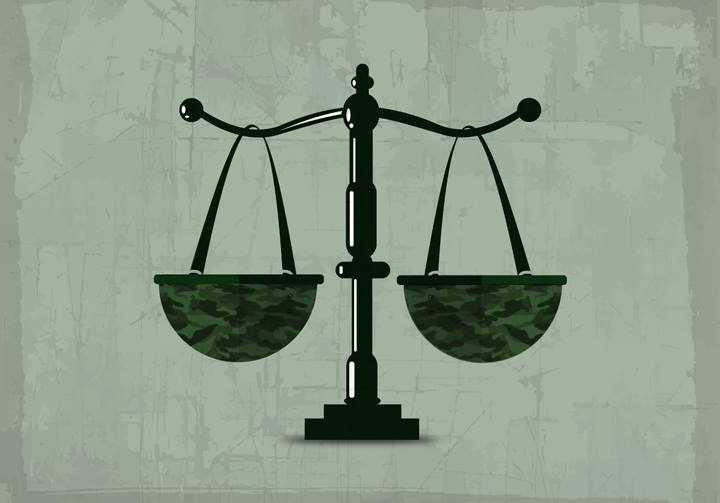ISLAMABAD: On December 15, a larger six-judge bench of the Supreme Court led by Justice Sardar Tariq Masood will hear the appeals against its earlier decision, in which it said unanimously that citizens accused of being involved in the May 9 riots should not be tried in military courts.

The SC list from Saturday says that Justices Aminuddin Khan, Muhammad Ali Mazhar, Hasan Azhar Rizvi, Musarrat Hilali, and Irfan Saadat Khan will also be on the bench.
Justice Ijazul Ahsan, Justice Muneeb Akhtar, Justice Yahya Afridi, Justice Mazahir Naqvi, and Justice Ayesha Malik made the order on October 23. They said that 103 people who are accused of crimes related to the violence on May 9 and 10 should be tried under normal criminal laws.
They made their decision after hearing petitions from people like former chief justice Jawwad S Khawaja, top lawyer Aitzaz Ahsan, and others who didn’t think civilians should be tried in military courts.
The caretaker federal government and the temporary governments in Punjab, Balochistan, and Khyber-Pakhtunkhwa asked the court to review the decision, which it did. There were rumors that the caretaker government in Sindh had challenged the ruling, but that was not true.
The defense ministry also had an appeal against the SC’s decision. It asked the highest court to stop the ruling from going into effect while its appeal was being heard.
A petition for contempt of court was also sent to the SC against Defense Secretary Lt Gen (retd) Hamooduz Zaman Khan for reportedly not following the court’s decision on October 23.
In its appeal, the interim federal government said that the events of May 9 were “targeted attacks” on military bases and facilities that were carried out in a “organized and coordinated manner.”
It also said that the killings were “not limited to one area or one person.” The appeal said, “The events of May 9 show a planned and intentional attempt to weaken the country’s armed forces and weaken its internal security.”
The plea said that after what happened on May 9, several FIRs were filed against the people who did it. It went on to say that some of the FIRs did not “explicitly mention” the Army Act provisions, but the highest court had already said that the nature of the crimes depended on what the FIRs said, not what part of the law it referenced.
In the appeal, it was said that the Supreme Court (Practice and Procedure) Act was not in line with the Constitution and had been in force since April 21. The court also said that because the act had become constitutional, the constitution of the bench was not following the steps set out in sections 2 and 3 of the law.
The court said, “Therefore, the judgment is liable to be set aside because it was rendered coram non judice [without jurisdiction], and is therefore void in the eyes of the law.” It said that the petitions could not be brought before the SC in its original authority because Article 184(3) did not allow it.
As the plea said, the accused people’s trial could not be questioned because it violated any basic rights, including those set out in Articles 9, 10, and 25 of the Constitution. This was true whether they were military members or not.
The appeal said that the petitions’ problems could have been solved by the high courts, which are supposed to do that under Article 199 of the Constitution.
It said that the petitions did not fall under “the contours that this court [SC] had determined for the exercise of its original jurisdiction.” According to the plea, crimes under Section 2(1)(d)(ii) included those covered by the Official Secrets Act. These crimes “related to works of defense or naval, military or air force affairs, which may be prejudicial to the safety, interest, defense, sovereignty and sanctity of Pakistan.”
The nature of these crimes makes it clear that, even though they were committed by people who are not in the military, they are closely linked to how members of the military should do their jobs, the statement added.









































